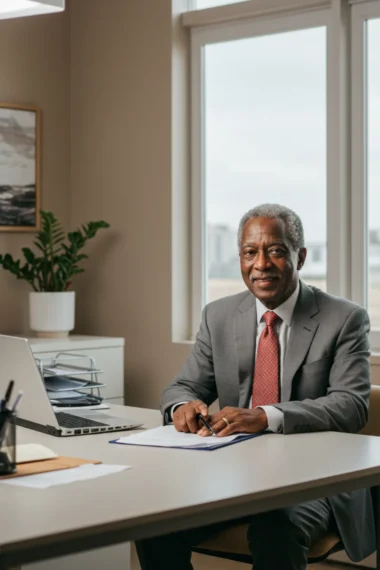What To Do After Early Retirement? 15 Smart Ways to Enjoy Life and Stay Fulfilled
According to the U.S. Census Bureau, nearly 19% of Americans retire before the age of 62—some by choice and others due to financial stability, layoffs, or health reasons. That’s millions of people suddenly facing an exciting yet daunting question: What should I do after early retirement?
Unlike traditional retirement at 65, early retirement gives you a unique gift: time. Time to explore passions, strengthen relationships, build new skills, and live life on your own terms. But here’s the catch—if you don’t plan what to do with all those extra years, retirement can feel empty, even stressful.
Understanding Early Retirement
Early retirement generally means leaving your full-time career before the age of 62. For some, it’s a dream of financial independence. For others, it’s a forced change due to company downsizing or health challenges.
The Upside of Retiring Early:
- More years of freedom – travel, hobbies, and family time.
- Better health opportunities – more time to focus on fitness and well-being.
- Personal reinvention – you get to choose a new identity beyond your job title.
The Challenges:
- Financial longevity – making savings last 25–30+ years.
- Emotional adjustment – shifting from a busy work routine to an open calendar.
- Social isolation – losing workplace connections.
That’s why having a game plan for early retirement is essential. Let’s explore the most rewarding ways to spend your time.
15 Things To Do After Early Retirement
1. Travel the World (or Your Own Backyard)
To make the most of your newfound freedom, start by exploring the places you’ve always dreamed of. Whether it’s backpacking across Europe, cruising through Alaska, or road-tripping across the U.S., travel enriches your soul.
Example: Many retirees join groups like Road Scholar or senior-friendly cruises that combine education and adventure.
2. Start a New Hobby
Retirement is the perfect time to unleash your creativity. Try painting, woodworking, photography, gardening, or even cooking international cuisines.
Instead of just gardening, join a community gardening club where you meet like-minded friends and share organic produce.
3. Volunteer and Give Back
According to the Corporation for National and Community Service, seniors who volunteer regularly report higher life satisfaction and lower rates of depression. You can:
- Mentor young professionals.
- Volunteer at local shelters.
- Contribute to nonprofit organizations.
4. Learn a New Skill or Go Back to School
Colleges and universities offer low-cost or free courses for retirees. From learning a new language to mastering digital skills, keeping your brain sharp helps prevent cognitive decline.
Duolingo reports that 20% of its learners over 55 are retirees learning new languages.
5. Get Physically Active
To live longer and healthier, incorporate regular exercise. Options include:
- Joining a SilverSneakers fitness program.
- Practicing yoga or tai chi.
- Taking daily walks or bike rides.
Fun fact: People who walk 7,000+ steps daily reduce their risk of early death by 50% (JAMA Network).
6. Start a Side Business
If you’re financially stable but miss the thrill of work, consider a low-stress side hustle:
- Consulting in your field.
- Opening an Etsy shop.
- Becoming a freelance writer or coach.
This keeps your brain engaged while generating extra income.
7. Strengthen Relationships
Retirement is the golden chance to reconnect with family and friends. Organize family reunions, babysit grandchildren, or plan regular get-togethers.

Many early retirees create monthly family traditions like game nights or themed dinners.
8. Move Somewhere New
Ever dreamed of living by the beach, in the mountains, or abroad? Early retirement gives you that chance. Countries like Portugal, Mexico, and Costa Rica are popular among U.S. retirees for their lower cost of living and healthcare.
9. Pursue Spiritual or Personal Growth
Meditation retreats, journaling, or studying philosophy can help retirees discover deeper meaning in life beyond money and careers.
10. Adopt a Pet
Pets provide companionship and boost mental health. Studies show retirees with dogs tend to walk 22 more minutes daily, improving fitness.
More Opportunities: Does Savers Have a Senior Discount Day?
11. Teach or Mentor
Share your career expertise with younger generations through community colleges, online teaching platforms, or mentorship programs.
12. Write a Book or Start a Blog
You’ve got decades of life stories and wisdom. Why not put it in writing? Many retirees write memoirs, novels, or blogs that inspire others.

13. Join Clubs and Social Groups
Look for groups on Meetup, local community centers, or churches. From hiking clubs to book groups, staying social prevents loneliness.
14. Focus on Health & Preventive Care
Schedule regular check-ups, eat nutritious meals, and prioritize sleep. Remember—good health ensures you can enjoy retirement for decades.
15. Create a Bucket List and Tick It Off
Whether it’s skydiving, learning salsa, or building a cabin, create a list and start crossing things off. This keeps life exciting and purposeful.
Financial Planning After Early Retirement
- Create a withdrawal strategy (e.g., 4% rule).
- Delay Social Security benefits for higher payouts.
- Diversify investments into bonds, real estate, or dividend stocks.
- Watch out for healthcare costs, since Medicare kicks in at 65.
A 55-year-old retiree with $1 million can safely withdraw around $40,000 annually under the 4% rule, adjusting for inflation.
Emotional & Mental Well-being
Early retirement is a big life transition. Without structure, some retirees feel restless or isolated. To avoid this:
- Build daily routines.
- Join community groups.
- Pursue lifelong learning.
Final Thoughts
Early retirement isn’t the end of your career—it’s the start of a new chapter. Whether you want to travel, learn, volunteer, or simply enjoy family life, the possibilities are endless. The key is to stay engaged, healthy, and financially wise.
So, what’s on your retirement bucket list?
FAQs
Is retiring at 55 too early?
Not if you’ve planned your finances carefully. Many people retire at 55 and thrive by combining pensions, investments, and side hustles.
How do I stay busy after retirement?
Stay active with travel, hobbies, part-time work, or volunteering. Having a daily routine helps.
Can I work part-time after retiring early?
Yes, many retirees choose flexible part-time jobs for income and social interaction.


